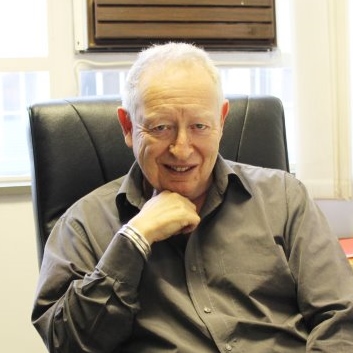
Featured Item

Winning the corruption race
NIA MAGOULIANITI-MCGREGOR
Executive Director of Corruption Watch, David Lewis may have his work cut out for him, but he’s neither panicked nor pessimistic. On the contrary, he’s surprisingly reassuring.
“We’re well placed in South Africa to deal with corruption,” he says.
While the average citizen may despair at recent news stories including the contents of the Guptaleaks, or shocking testimony linking graft to government ministers during recent parliamentary committee reviews, Lewis’ worry barometer remains steady. He says the situation is nowhere near “desperate”.
“As long as the public doesn’t believe nothing can be done, we are okay,” he says.
“Corruption may be widespread in South Africa, but we’re winning the hearts and minds of people. The public refuses to accept it. Our media continue to freely report on corruption and the courts are independent. If you look at Russia, Nigeria or India, you’ll find there are far more hostile environments in which to fight this scourge.”
He likens South Africa’s battle against corruption to a race. “We’ve run 95 of the 100 metres. It’s just that the last five are the most difficult,” says Lewis. “We’re almost there, but we don’t dare slow down now.”
Lewis, a former general secretary of the General Workers Union and national organiser of the Transport and General Workers Union, has been at the helm of Corruption Watch since its inception in 2012. An “advocacy organisation more than an investigative agency”, much of Corruption Watch’s work focuses on legislative work, public education, campaigns and raising the public’s awareness of corruption.
Before that, he chaired the Competition Tribunal from 1999 to 2009, which became the subject of his book, Thieves at the Dinner Table.
He loves politics, though, he says, he was never a party political person – “I prefer independent NGO work.”
An activist at UCT and Wits where he trained in economics, Lewis’ social conscience was shaped by parents who were “generally liberal people who believed in justice”.
“My friends’ parents were of the ‘don’t-get-involved-in-politics’ variety – ‘keep your head down, the fact that you’re Jewish will reverberate badly on the community’, they’d say – but mine were supportive and proud.”
Today, Lewis believes the Jewish community should studiously avoid keeping their heads down. “We should all examine our everyday lives and decide where a contribution can be made.
“Jewish business people have a huge and powerful presence. We are a community of professionals. We must represent the good guys. We must not keep our heads low in case businesses will be negatively impacted on. Where people have influence and authority, they have a duty to stand up and be counted.”
The community must call out the conspicuous presence of Jewish names in the Gupta story, he says. “We are all guilty by association.”
“We are also all members of a community whether it’s a synagogue or a sports club. We always have an opportunity to take a stand over whether this or that action is appropriate. Each of us can make a difference.”
As he said in his Corruption Watch launch speech, “It’s time that we struck back at those who would destroy what so many fought for.”
It’s time, he says, to “create a culture of accountability”.
“It’s about whether we shoot a red robot or pay a bribe. We need to think about our impact on others in our day to day activities.”
In a recent speech, Lewis said the best way to know whether conduct was unethical, was this: “If you would prefer not to have your conduct reported in the Sunday papers, then it’s best not to engage in it.”
Lewis also believes it’s time for citizens to drop the idea that this is a natural part of what happens when a black government takes power. He also says while the government has been “captured by a corrupt bunch”, it’s not monolithic. “We work fruitfully with many departments who are sympathetic to our cause.”
One of the factors that might have contributed to a corrupt landscape was, says Lewis, the fact that civil and community organisations that fought the apartheid government were disbanded when that regime was brought down. “We weren’t vigilant enough and civil society was demobilised – but it has revived.’“The main lesson we’ve learnt is that there’s always a need to watch corruption. You can never imagine you have a government which is safe from the temptation to abuse power.”
But even Lewis is not perfect, he says,“I’m famously impatient. My wife Terry Kurgan and daughter Jessie, hold me to account.”
Lewis says he doesn’t see himself as a “do-gooder”
“I love engaging with the public. It’s a big part of our model.”
Do-gooder or not, Lewis loves his work. “I’ll carry on doing what I’m doing until they carry me out of here.”
Ways to tackle corruption
- Donate money – see the Corruption Watch website for details.
- Refuse to bribe or take bribes
- Report any attempt to bribe you.
- Know your rights.
- Be squeaky clean in your own dealings.
Corruption Watch Call Centre No: 0800 023 456




